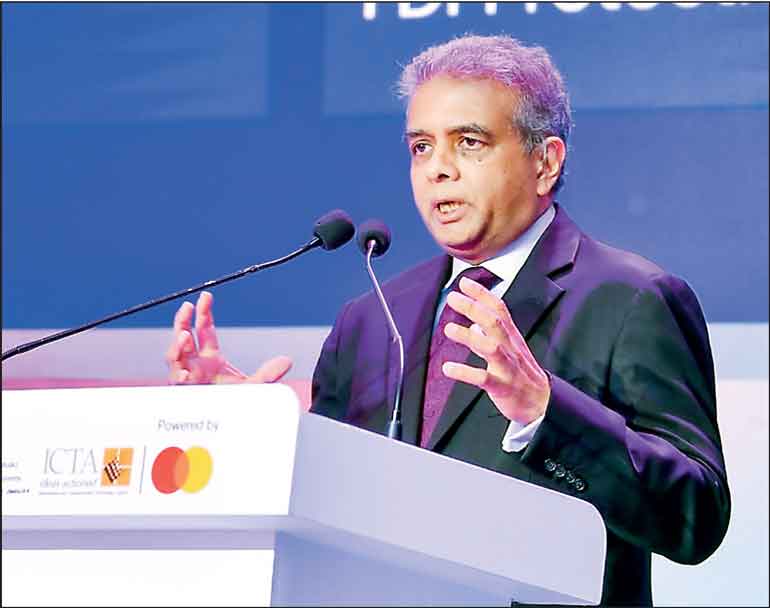Saturday Feb 21, 2026
Saturday Feb 21, 2026
Friday, 19 September 2025 00:00 - - {{hitsCtrl.values.hits}}

Chief Adviser to the President on Digital Economy and Information and Communication Technology Agency (ICTA) Chairman Dr. Hans Wijayasuriya yesterday presented Sri Lanka’s digital economy blueprint and positioned the country as a rising force in the global digital innovation landscape.
Speaking at the Disrupt Asia 2025 forum, he said the country is staking its claim as a rising force in global digital innovation.
Dr. Wijayasuriya stressed that the foundation of Sri Lanka’s digital value proposition rests on three key pillars; a pool of globally competitive talent, a trust framework second to none in the region and a digital economy at the cusp of exponential growth. “All within a strategically located island economy connected to a regional market of over two billion people, this is your moment of confidence, welcome to Sri Lanka,” he said.
He described the country’s approach as building “digital ground” powered by centres of excellence in vertical solutions, mature identity systems and world-class networks, all tied together through horizontal Digital Public Infrastructure (DPI). This framework, he explained, will enable and open API-driven architecture encouraging innovation across payments, identity, data exchanges, verifiable credentials and interoperable services.
“DPI opens the entire engine of Government and expands beyond into public-private collaboration, giving developers and startups frictionless access to create new services for citizens, businesses and tourists,” he said.
He highlighted that that the country produces over 36,000 STEM entrants with over 10,000 job-ready and high-tech graduates joining the workforce.
Dr. Wijayasuriya said this talent pool has already given rise to 950 startups, with over 100 tech ventures raising funding in the past three years. Despite its growth, the ecosystem remains underfunded, presenting an opportunity for investors to step in a start of an exponential growth curve. “Several global names were born in Sri Lanka. There is no reason this list cannot multiply by 10 or 20 if given the right support,” he pointed out.
He argued that trust is the second defining asset, adding that Sri Lanka already has a robust set of digital laws and frameworks, with new policies and guidelines on the way.
ICTA Chief also noted that the Government is adopting a “soft law, innovation-permissive” approach to AI and digital regulation, balancing strong governance with space for creativity. “Trust is the new currency of investment, but without permission for innovation, trust alone has no value,” he said.
Dr. Wijayasuriya disclosed that the Government has adopted “State as a platform” model, with it acting as an enabler rather than a controller. Noting that this approach is structured around 80:20 principle, where the Government provides the enabling 20% and the private sector driving the remaining 80%, he said it is expected to unlock over $ 15 billion in economic value. “The question is not whether this opportunity exists, it is who will capture it,” he challenged, inviting investors and innovators to engage now to maximise rewards in the coming years.